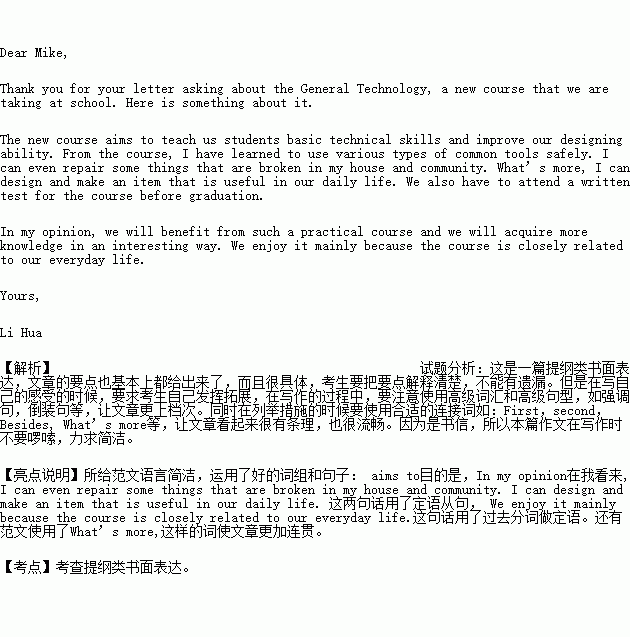题目内容
假如你是李华,你的美国笔友Mike想了解你校开设的新课程《通用技术》的情况,你向他作如下的介绍:
1. 这门课旨在提高学生的实际运用能力;
2. 通过这门课的学习,你已经学会了修理、设计和制作一些物品;
3. 你的感受。
注意:1. 词数不少于100;
2. 开头和结尾已经给出,不计入总词数;
3. 可适当增加细节,以使行文连贯;
4. 通用技术— General Technology
Dear Mike,
Thank you for your letter asking about the General Technology, a new course that…
____________________________________________________________________________
____________________________________________________________________________
____________________________________________________________________________
Yours,
Li Hua
练习册系列答案
 天天向上一本好卷系列答案
天天向上一本好卷系列答案 小学生10分钟应用题系列答案
小学生10分钟应用题系列答案
相关题目

